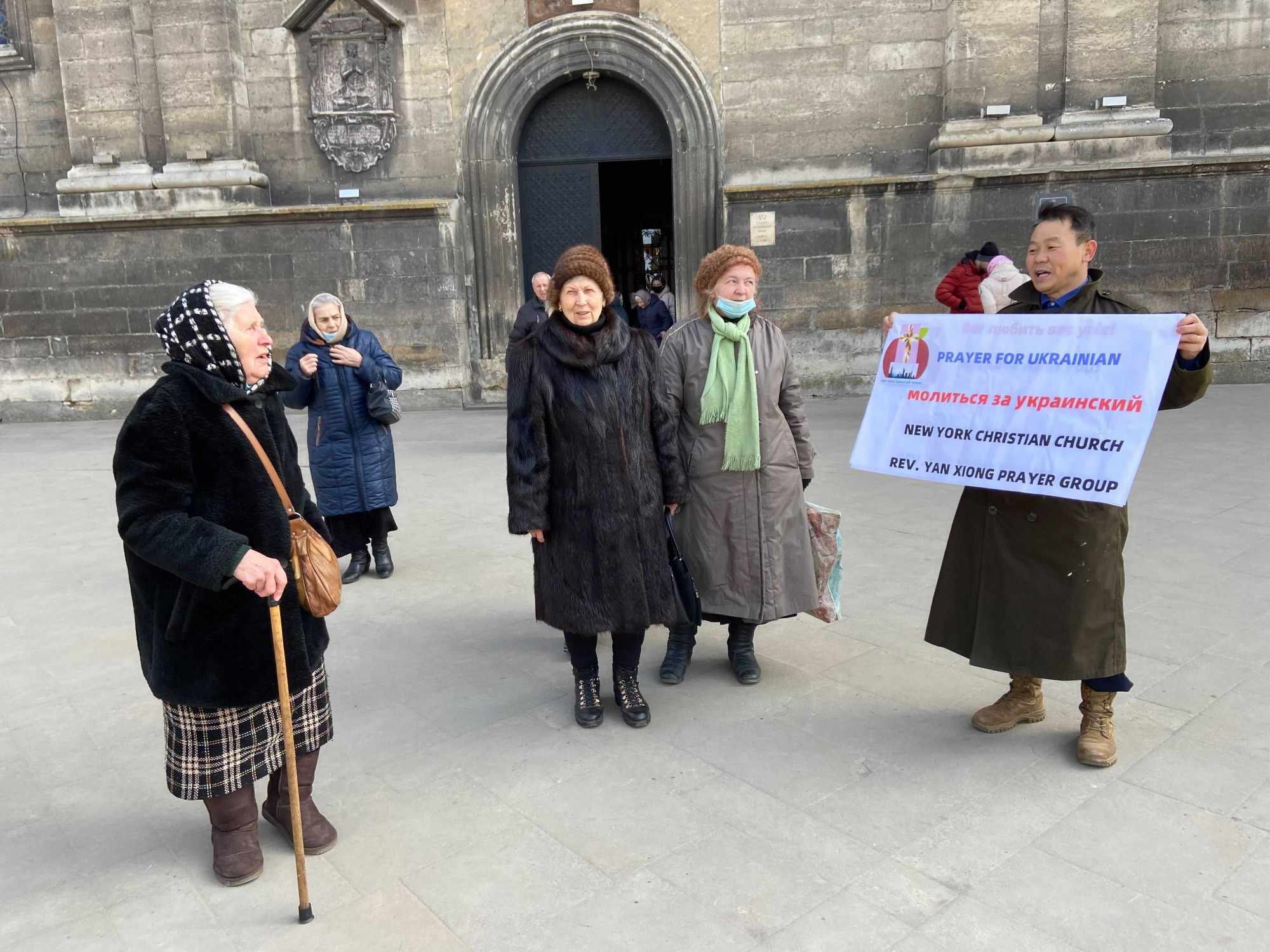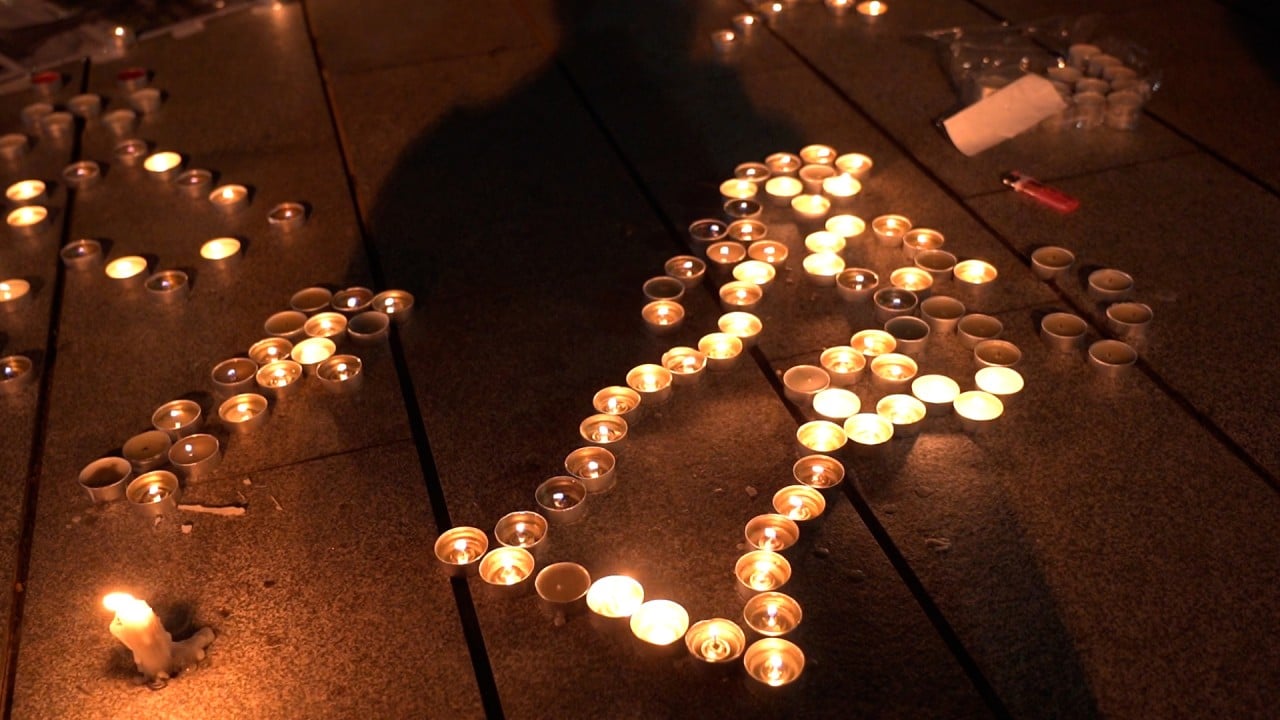
China harassed Tiananmen Square dissident running for US Congress, prosecutors say
- The target was not identified in court documents, but fits the description of former protester Xiong Yan
- Chinese government agent Qiming Lin allegedly asked a private investigator to help manufacture a political scandal to undermine the candidate
United States prosecutors unveiled charges against a Chinese national on Wednesday over an alleged scheme backed by Beijing to pressure a former pro-democracy protester out of running for Congress.
The indictment, brought in a federal court in New York with assistance from counter-intelligence officials, accused Chinese national Qiming Lin of plotting to fabricate derogatory information about the victim, and even have him physically assaulted.
Prosecutors did not name the target of those efforts, but their description of him closely matched Xiong Yan, a former student leader of the Tiananmen Square protests of 1989 who later joined the US military as a chaplain and is now running for a US congressional seat in New York.

Citing a source familiar with the case, The New York Times confirmed Xiong to be the victim.
Prosecutors said 59-year-old Lin, who remains at large, worked on behalf of Beijing’s Ministry of State Security (MSS). If convicted, he faces a minimum sentence of 10 years in prison.
Reached on Wednesday, Xiong said he was unable to comment on any of the facts in the case as he had not heard of the indictment until its release on Wednesday. But speaking in general terms, he said it was “wrong” that anyone should try to silence someone running for public office.
“I’m running for Congress – that’s my constitutional right,” said Xiong, who had just returned to the US from a visit to Ukraine to show support for the Eastern European country that has been under assault by Russia’s military for weeks.
“Not anyone can [bother] me and harass me. I have been protected by the Constitution of the United States and the people of America, who I’ve served … for 27 years,” he said, referring to his time spent as a military chaplain in the US Army.
Prosecutors said Xiong was the victim of a scheme by Beijing to target US residents whose political views were deemed “unfavourable” to the Chinese government, such as campaigning for democratic reforms in China.
Since seeking political asylum in the US in 1992, Xiong has been an outspoken critic of China’s human rights record and has testified before Congress about the bloody events of June 4, 1989. According to Xiong, he served 19 months in a Beijing prison for his role in the protests.
According to prosecutors, Lin suggested that the private investigator “create” a scandal to use against Xiong, and pointed to the 2021 detention of famous Chinese pianist Li Yundi over alleged solicitation of a prostitute as a potential blueprint for the ensnarement scheme.
And as a “last resort”, Lin suggested orchestrating a car accident or other form of violence that would harm Xiong so badly that he could no longer run for office, prosecutors said.
“You can start thinking now, aside from violence, what other plans are there?” Lin was alleged to have told the private investigator in a voice message. “But in the end, violence would be fine too. Huh? Beat him, beat him until he cannot run for election.”
On Thursday, Beijing denied the US charges of an extraterritorial repression campaign, describing them as having been “made out of thin air” while not addressing any of the specific details in the indictment.
Beijing had “never asked and will not ask Chinese citizens to do things that violate local laws and regulations”, said foreign ministry spokesman Zhao Lijian. “The US plot to use this to hype up the ‘China threat’ and smear China’s reputation is doomed to fail”.
The case against Lin was one of three indictments announced by the Department of Justice, which also brought charges against a former pro-democracy campaigner in the US, who allegedly worked with the MSS.
Wang Shujun was arrested on Wednesday morning and charged with acting as an agent of the Chinese government and lying about his “participation in a transnational repression scheme”. Wang, 73, was accused of gathering information on prominent dissidents to send to Beijing, including details of private conversations he had with those campaigners about their views on the Chinese government.
Prosecutors also charged three men – two based in the US and one in China – with conspiracy to act as agents of the Chinese government, involving surveillance schemes and a plot to destroy artwork by a US-based dissident artist who had produced a statue of Chinese President Xi Jinping as a coronavirus molecule.
Chen confirmed on Wednesday that he had been contacted by FBI officers about the case. Despite the alleged plot against him, he said he would continue to produce artwork critical of Beijing and felt safe doing so, given that the US government had indicated there would be consequences for damaging his work.
“In that sense, I think I should have pretty good protection,” Chen said. “[But] whether or not I’m protected, I should continue doing the things I must do, to document the truth.”
“As alleged, all of the defendants charged today at the direction of the PRC secret police, engaged in a series of actions designed to silence the free speech of Chinese dissidents in the United States,” said Michael Driscoll, assistant director-in-charge at the FBI’s New York field office.
Driscoll said that translational repression schemes posed an “increasing threat” to US residents who opted to speak out against the Chinese government.
After details of the alleged harassment scheme were released, Xiong’s resolve to continue running for office appeared unchanged, even as he expressed some concern about his own well-being.
“I have confidence, I have no fear,” he said. “However, I should be careful.”


